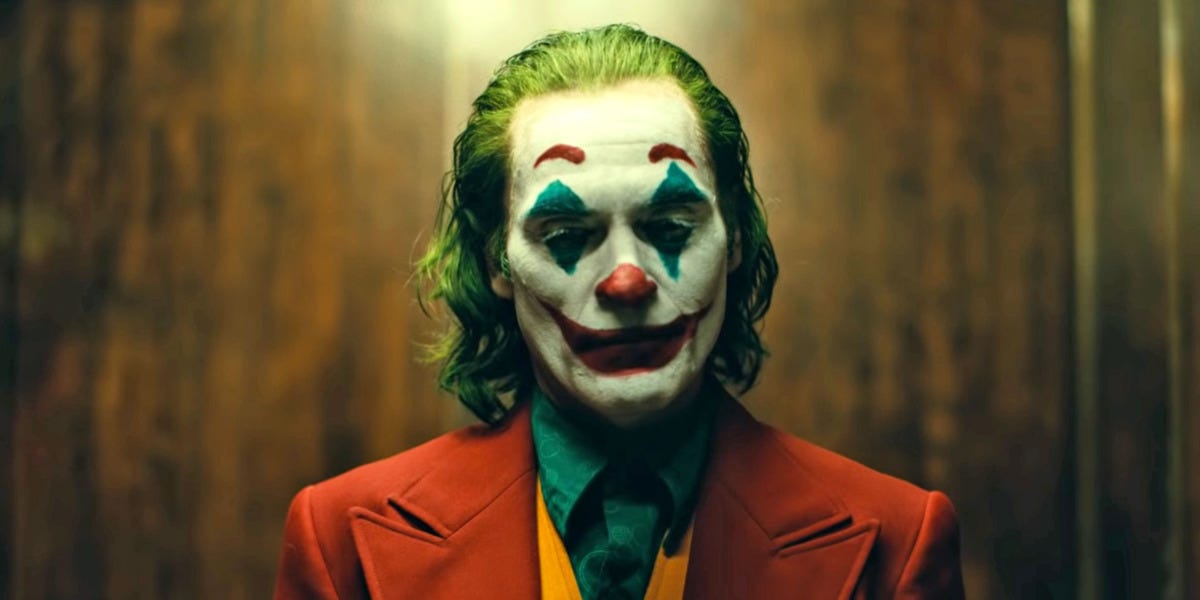#28 Joker
In Summary
Joker is a film that knows exactly what story it wants to tell and how it wants to do it.
A clear homage to the New Hollywood era where directors such as Martin Scorsese, Francis Ford Coppola and William Friedkin were king, Joker uses a lot of the paraphernalia, techniques, and themes of that age of filmmaking. Most notably, Joker follows the plot of Scorsese's King of Comedy almost beat-for-beat.
Much like those New Hollywood films, the central acting performance is what is most memorable about Joker. The film is tour-de-force showing from Joaquin Phoenix, who delivers both a charisma and physicality to his performance as Arthur Fleck that you cannot take your eyes off.
If there is one thing that epitomises Phoenix's performance in the role it is the sheer pain and anguish he conveys during the fits of pathological laughing that dot the film. It's almost difficult to watch the sheer torture this character is going through simply existing.
Joker is the story of the transformation of the naive, delusional, powerless Arthur Fleck into the powerful, violent, murderous Joker. By portraying The Joker's backstory in this trajectory, the character feels less intelligent and in control than in other screen appearances, but makes the descent into violence simultaneously more understandable and unsettling.
By using The Joker's mental illness as a storytelling device, the concept of the story of Joker being told by an unreliable narrator is pointed towards throughout the film. While this is used to portray the character's delusions of grandeur, it does also give the film an easy way out of explaining any inconsistencies or weaknesses in the plot.
After carefully plotting Arthur Fleck's descent into villainy - including a not-so-subtle visual metaphor involving a flight of stairs - Joker takes a turn to the nihilistic in its ending. It transforms the message of the film from being about the risks of neglecting those on the margins of society into one of how little it takes to turn a society to violence.
To then end on a note that maybe none of this actually happened only confuses the message further.
A Memorable Quote
For my whole life, I didn't know if I even really existed. But I do, and people are starting to notice.Things You May Not Know
- The first R-rated (the equivalent to a 15 certificate in the UK) film to make $1 billion worldwide.
- The joke "When I was a little boy and told people I was going to be comedian, everyone laughed at me. Well no one's laughing now" is taken from the British comedian Bob Monkhouse.
- Robert De Niro and Joaquin Phoenix fell out with each other making this film, with Phoenix not wanting to participate with De Niro in a read-through of the script prior to filming.
Joker is unlike the majority of other comic book movies, both in terms of being immensely character-driven and in its harkening to other films outside the world of comic books. While at times it feels the film is attempting to be edgy for the sake of being edgy, Joker is an intensely captivating film to watch that has constant forward momentum without resorting to action set-pieces.
While the ultimate message of the film is a little incoherent, Joker will be remembered for telling its story with efficiency and panache, along with an incredible central acting performance from Joaquin Phoenix.

Comments
Post a Comment